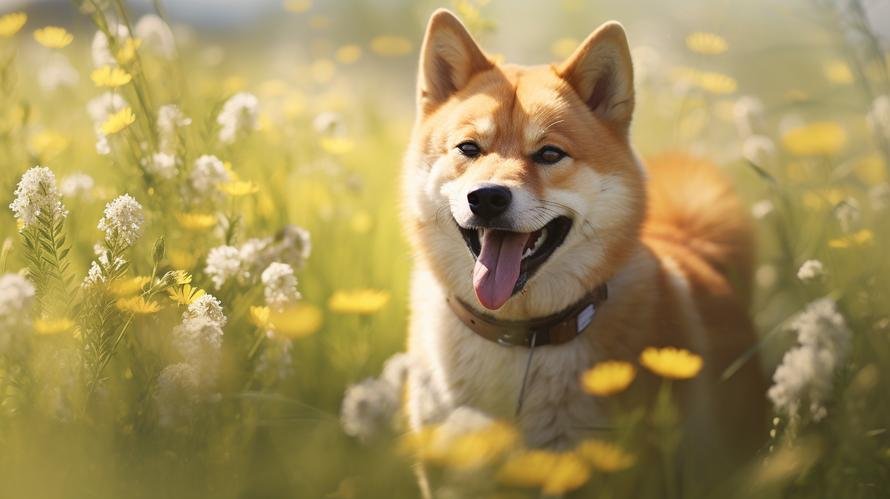Have you ever thought about owning an Akita? These magnificent creatures originated in the mountainous northern regions of Japan, and they are known for their bravery, loyalty and strength. But, you may also have heard rumors and whispers painting Akitas as dangerous dogs. Well, it is time to debunk such misconceptions and really understand what makes an Akita tick.
To judge any breed, or, individuals of any species, purely based on rumor would be a grave injustice. Instead, let’s delve into the intricate world of Akitas using research, expert opinions and a fair-and-square analysis.
Akitas are captivating beings, with a royal ancestry rooting back to Japan’s royal family who bred these dogs for hunting, guarding and companionship. Emperor Taishi had an Akita named Yamaarashi (porcupine) and the breed was once considered a national treasure in Japan. Akitas were bred to be noble, courageous, and have a strong protective instinct while carrying themselves with dignity.
However, like every guardian, the Akita’s protective instinct can become dominating if not guided properly. That is where intelligent ownership and effective training come in.
Inherent in every Akita’s genetic make-up is a robust protective instinct which, if left untrained or provoked, can result in aggressive behavior. This is where the assumptions come from, labeling an Akita as ‘dangerous.’ In reality, an Akita is not more dangerous than any other breed with a strong protective instinct—it all comes down to how their natural instincts are managed.
It’s essential to be aware that while physical training tactics work exceptionally well with some breeds, an Akita thrives on mental stimulation. A sophisticated breed, Akitas use their intelligence to assess a situation, making them excellent problem solvers and skilled at outsmarting a passive owner.
A well-rounded approach is critical. Moulding an Akita to become a friendly, sociable family pet involves a delicate balance of discipline, reward and lots of love. A rushed or brute force approach can backfire, causing the Akita to become defensive, eventually expressing itself in an aggressive manner.
Another vital thing to remember is that Akitas are pack animals. They need to know who the alpha is, and if they don’t, they will attempt to assume the leader’s role. Establishing yourself as the ‘pack leader’ right from the start is the most effective way to ensure you are respected and obeyed.
With great power comes great responsibility. Anyone choosing to share their life with an Akita must do an honest assessment: “Am I truly ready to take on this privilege and duty?”
Responsible Akita ownership involves seeking professional advice concerning breed-specific training. This could mean attending obedience classes or hiring an experienced trainer who is familiar with the breed. Most crucially, good ownership means loving but firm discipline, and a dedication that extends beyond just a walk in the park.
It is often said that there are no bad dogs, only bad owners. And while this might be an oversimplification, it serves as a poignant reminder. Understand your Akita, set boundaries, provide a stable environment, and the result will be a loyal, courageous, and loving member of your family who is ready to protect you at all costs.
In conclusion, an Akita is not inherently dangerous. Like any breed, they are a product of their environment, training, and treatment. They are loyal, protective, and intelligent. If you can demonstrate leadership, compassion and understanding, an Akita would not only be a good dog, but they can turn out to be one of the best ones.
So, next time someone asks, “Is an Akita a dangerous dog?” you will have a well-researched, comprehensive answer to offer. You can shed light on the true nature of this majestic breed: they are powerful and protective, yes, but ‘dangerous’ is decidedly not a term that should be associated with them.
Every breed has its own unique set of characteristics that make it shine. The Akita is no exception. Embrace the breed for what it truly is: A brave, dignified, loyal companion whose reputation, like every dog, relies on the responsibility of its humans.
In a well-adjusted environment, provided with enough mental and physical stimulation, no breed is inherently dangerous—Akita included. Instead, they can be the best companion, protector or even a playful goofball —whichever you allow them to be. Remember, proper understanding, training, and true commitment to being a responsible dog owner can turn any dog, even an Akita, into a cherished family member.



